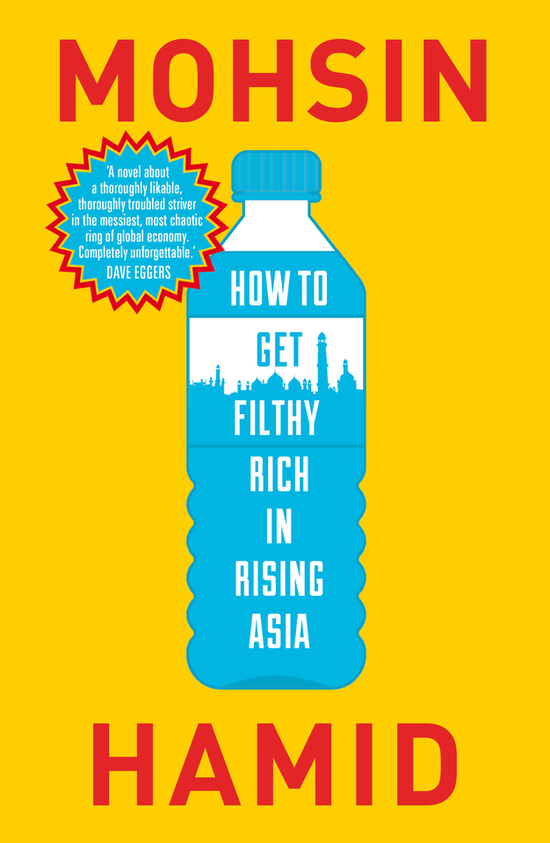How To Get Filthy Rich in Rising Asia, by Mohsin Hamid. Penguin, 2013. R$ 20,09 (Kindle) at amazon.com.br, 222 pages.
Mohsin Hamid’s third novel is a 21st-century version of The Great Gatsby, which takes place in an unnamed emerging country that undergoes profound social change. The book’s characters enact the life of this nation, or, perhaps more broadly, the transformation that the emerging world is experiencing – not just in Asia, but also in Africa. While The Great Gatsby may be the quintessential American novel, How to Get Filthy Rich in Rising Asia is an account of life in the emerging world, marked the tensions generated by urbanization, economic growth, social mobility, inequality, poverty and environmental degradation. The lack of providing names of any of the story’s characters (merely called ‘you’, ‘the pretty girl’ or ‘your mother’) or cities lend the book its universal character.
Using his admirably succinct style, Hamid captures the many dynamics emerging countries such as Pakistan, India, Nigeria and many others experience. He writes of the “the bus ride from village to city appears to span millennia”, with buildings that “go from mud to brick to concrete, then shoot up to an unimaginable four stories, even five”.
He describes neighborhood streets as a “a ribbon of convenience stores, auto garages, scrap-metal dealers, unregistered educational institutes, fly-by-night dental clinics, and mobile-phone top-up and repair points”. He mentions to “cocaine-snorting” man-children “too chronically insecure to appear in his father’s head office much earlier than 11 or to stay much later than three, prone to picking up teenage girls at parties” in their “muscular European limousine and to sobbing unpredictably when drunk”.
In several ways, Hamid’s novel can be compared to The White Tiger by Aravind Adiga, which deals with the rise of a new entrepreneurial class in India that lacks the old elite’s Oxbridge degrees, but which is more ambitious, tough and at times ruthless than the young latte-sipping, iPhone wielding and somewhat accommodated establishment. Yet just like in Adiga’s novel, the reader hardly wants to blame Hamid’s main character, who merely responds to a highly unstable environment that includes competitors who send death threats, bureaucrats who ask for large bribes and occasional terrorism that destroys company property.
Ironically thus, while the author chooses the format of a self-help book, a profound notion of powerlessness and chance permeate the character’s turbulent trajectory:
“There are forks in the road to wealth that have nothing to do with choice or desire or effort, forks that have to do with chance, and in your case, the order of your birth is one of these You’re a third-born son. Third born means you’re spared from going to work immediately (like your elder brother) or being married off (like your sister, who at puberty is must marry). Third born means you’re not a tiny skeleton in a small grave at the base of a tree, like your youngest sibling. Third born means you stay in school.”
What makes this book worth reading that it is not only about the “rise of the rest” and the unsettling drive for growth and modernization, but (perhaps much more so) about love, ambition and mortality – and all that in a surprisingly uncomplicated fashion – likely to make most readers stay up late to finish How To Get Filthy Rich in Rising Asia in one sitting.









